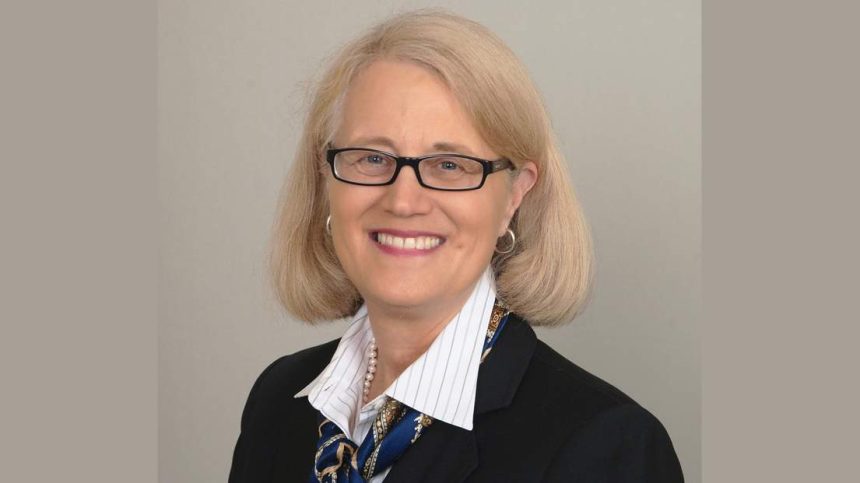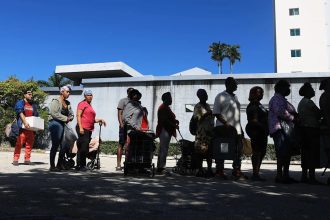On the second Saturday in October, during National Coming Out Day, from morning into afternoon, the smell of espresso and the low murmur of conversation filled Joe’s Coffee Shop in East Atlanta Village. At a corner table, state Rep. Karla Drenner greeted familiar faces and discussed what it means to stay visible and keep showing up.
Keep up with the latest in LGBTQ+ news and politics. Sign up for The Advocate’s email newsletter.
“I didn’t run to be the first,” she told The Advocate in an interview at the café. “I ran to be a good representative.”
When Drenner, now 64, was first elected to office in 2000, she made history as the first LGBTQ+ person elected to any state legislature in the American South. A Democrat representing parts of DeKalb County, in a district she notes includes 27 Baptist churches and is nearly 80 percent Black, she’s now in her 13th term and is Georgia’s longest-serving out LGBTQ+ elected official.
Related: Human Rights Campaign calls on LGBTQ+ community to dream & to fight for equality at national dinner
“They said I wasn’t worthy of being known”
As the coffee shop filled with the late-morning crowd, Drenner, who had come to join the Human Rights Campaign’s Atlanta stop of the organization’s “American Dreams” storytelling tour, recalled a time, early in her political life, when someone told her she “wasn’t worthy of being known.” It was a line that stuck with her. It was also a reminder of how invisibility once defined public life for LGBTQ+ people in Georgia.
She told The Advocate that, years after that rejection, one of her former colleagues approached her to apologize. “He said, ‘I decided you weren’t worth knowing.’” She added, “He watched me for years, and one day he said he was wrong.”
The apology, Drenner said, reminded her why presence matters. “That moment really changed me,” she said. “It reminded me that showing up day after day doesn’t just change laws — it changes hearts. It can turn an opponent into a partner.”
She also shared that she didn’t come out publicly by choice. “I just ran, and then suddenly I was in The Washington Post and The New York Times,” she said, describing how national media coverage effectively outed her as a lesbian after her first election. In 2004, The New York Times profiled her in a piece titled “Gay Legislator at the Center of a Storm in Georgia,” reporting that she had become an unexpected symbol in a state where a proposed constitutional ban on same-sex marriage had drawn national attention.
A 2002 Washington Post profile described her as a “novelty and model” in a body unused to openly queer representation.
Drenner’s voice softened as she recalled how isolating those early years were. “I felt the stares, the whispers,” she said. “There were days when people took the next elevator rather than ride with me.” Still, she refused to disappear. “If I had stayed home, my absence would have become its own quiet form of resistance. So I kept showing up.”
Reflecting on 25 years under the gold dome, Drenner said her early years in office taught her how to withstand being treated as an outsider. “My experience of people not wanting to know me is probably small in comparison to what trans people are feeling today,” she told The Advocate as she expressed respect for trailblazing Delaware Democratic Congresswoman Sarah McBride, the first out trans member of the U.S. House of Representatives. “Times have changed for certain segments of the gay community, and now trans people have become the whipping posts for the religious right.”
Related: Ts Madison says Donald Trump and his transphobic administration should just ‘pack it up’
Over the past four legislative sessions, she said, she’s pushed back against every anti-trans bill that crossed her desk, with some so sweeping they sought to change dozens of sections of Georgia law. “That’s the extent they’re willing to go to erase trans people from society,” she said.
Since 2023, the American Civil Liberties Union has tracked 32 anti-LGBTQ+ bills in the state of Georgia. In 2025 alone, nationwide, the ACLU is tracking more than 610 bills targeting queer and trans people, including 13 in Georgia.
Related: Inside the fight against Trump in red states: It ‘isn’t just about Pride. It’s about power’
Drenner sees parallels between the skepticism she faced and what trans legislators experience now. “Change doesn’t happen overnight,” she said. “It’s one person at a time, one story at a time.”
The South, in all its complexity
Born in Charleston, West Virginia, Drenner earned degrees in health physics, environmental science, and public policy. She has taught environmental health science and public policy, and she serves on several Georgia House committees, including Energy, Utilities & Telecommunications as well as Small Business Development.
Her story complicates assumptions about Southern politics. “People think you can’t be gay and win in a Southern state,” she said. “But I’ve represented this community for 25 years. The sermons may turn against me, but that doesn’t mean I stop showing up.”
She’s seen progress emerge in unlikely places. “If it can happen in the South,” she said, “as goes the South, so goes the nation.”
Lessons from a quarter-century in office
When she entered the Georgia House, Drenner was part of a majority that worked across the aisle. “We sat next to people of different parties,” she recalled. “Now our offices are fully partisan. We’ve lost the ability to connect.”
Still, she finds moments of grace. After divisive votes, some lawmakers privately approach her to apologize. “It’s almost like they’re asking for redemption,” she said. “I’ve sat next to Tea Party Republicans I came to respect because of their conscience-based faith. I didn’t change their minds on social issues, but I liked them as people.”
Related: A powerful civil rights group is hitting the road and going to red states. Here’s why
Drenner remains mindful of the history that preceded her. “I wasn’t out when I ran,” she said. “I won, and then suddenly I was out. My generation was Baptist — we practiced shame.”
Now, she said, coming out is more common, but the movement risks losing touch with its roots if history is forgotten. “We need to look back at our foundational heroes,” she said, citing Vermont legislator Bill Lippert, a key advocate for marriage equality, who served in the state legislature for 28 years until leaving in 2022. “Those early pioneers are the rock of our movement. We stand on their shoulders.”
Advice for the future politicos
Asked what she tells people inspired by her path, Drenner laughed. “As long as you don’t run against me, I’ll be with you,” she joked. Then she turned serious: “Nobody asked me to run. You don’t need permission to follow your dreams. You may not win, but that doesn’t discount your effort. Believe in yourself first.”
This article originally appeared on Advocate: Lesbian Georgia legislator, first LGBTQ+ person elected in the South, is still showing up 25 years later









